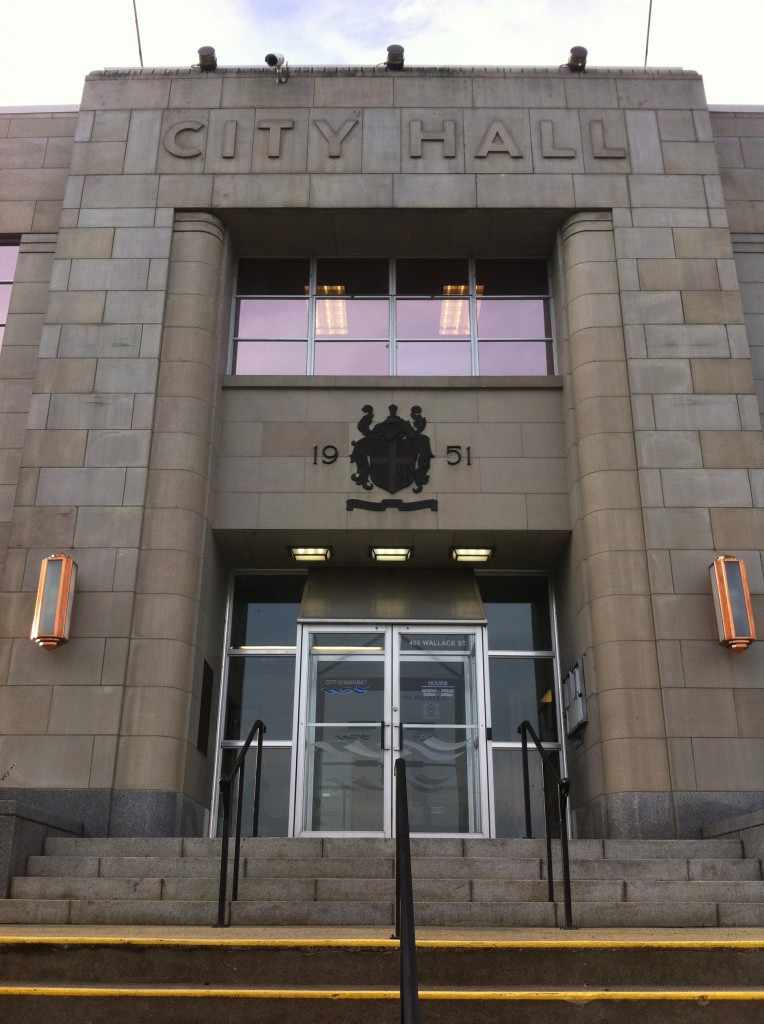The City of Nanaimo has passed a staff recommendation that would allow the city to potentially implement a bylaw eliminating fossil fuels ahead of the 2030 deadline.
The recommendation to speed up the province’s recommended step code process passed unanimously during the July 26 council meeting. It would see new family homes, as well as multi-family complexes built after July 1, 2024, meet zero carbon performance level one.
According to the CleanBC website, level one indicates performance better as well as, or better, than a building constructed to meet the minimum prescriptive energy efficiency requirements of the BC Building Code.
Councilor Janice Perrino says the meeting was attended by representatives from Fortis and Hydro BC to present their outline for the recommendation, but despite council’s decision to pass the recommendation it still has yet to be put into a bylaw.
“The recommendation that was passed in council will now be formatted into a bylaw,” she says. “This will have to come back in front of council and may, or may not, pass.
“The province has already put the code in place for 2030, we are just proposing an acceleration, so Nanaimo is ready.”
Perrino says residents are fearing the transition from natural gas to electric is happening too quickly and some are worried about the financial implication of retrofitting their existing homes, but she says it is not the case.
“This is not happening for them right now, this is just for new buildings,” she says. “This is for new buildings of larger scale. It is accelerated, and difficult, for them too.”
Perrino says acceleration may not be the answer but that won’t be decided until council has all the facts and debates the issue at the end of August.
“Not all of council agrees this is the best move,” she says. “It is very possible when it comes to a bylaw several councilors might vote against.
“It is going to happen, just why accelerate it.”
Perino says council discussed the potential impact on the city’s electrical grid with this transition, which seems warranted according to a reliability rating performance study by Hydro BC that found an increase in consumer disruption hours from 2020 to 2021.
“With a potential increased demand on the grid along with electric cars, there is a concern about our power grid,” she says. “Even during the winter season hydro usage increases even more, so we need to ask if this is the right time.”
Nanaimo declared a climate emergency in 2019 which means the city is looking for ways to decrease the carbon footprint, and Perrino says although she feels natural gas is safe and effective the city still needs to look at alternatives to efficient homes.
“Natural gas is right there, it is safe and reliable and inexpensive when compared to electric, so what is the rush,” she says. “Nanaimo clearly has said, by the declaration in 2019, we need to try and move things forward.”
Several experts have presented their opinions to other councils throughout the province detailing pros and cons when it comes to comparing natural gas and electric power.
Fortis BC representative Blair Weston said in a report in April that energy output is going to be much greater and more efficient for users year-round.
“When I asked the question of how much energy is delivered by the electrical systems in BC, the answer is simple: 17 to 18 percent. That is a very small amount when you compare it to natural gas,” Weston said.
However, Dr. Kyle Merritt of the Doctors for Planetary Health says his research indicates switching to electricity not only has a positive effect on climate change, but it also has a huge impact on health.
“Natural gas has methane in it, which is a strong contributor to air pollution and climate change,” he says. “This also has a direct impact on our health. There are ways to mitigate it but natural gas is still a big problem.”
All councilors were in favor of the recommendations, but mayor Leonard Krog says he reserves the right to change his mind after those councilors who were not in attendance expressed their opinions about the potential acceleration bylaw.


